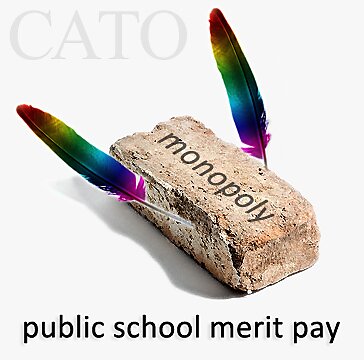A sophisticated study released this week finds that merit pay for public school teachers doesn’t seem to improve student achievement. Why not?
Ask almost anyone—even Fidel Castro—and they’ll acknowledge that the free enterprise system results in higher quality and greater efficiency than government monopolies. As a result, it has long been argued that we should introduce this or that aspect of free markets into the public school system. And that’s the problem. The free enterprise system is a system. It is not a smorgasbord from which we can pick an isolated incentive here and a particular freedom there, and expect to get the same results we’ve come to expect from full-fledged markets.
Offering merit pay to teachers does nothing to liberate principals from the shackles of union contracts and state licensing requirements that determine whom they can hire and fire. Neither does it give principals the incentives enjoyed by private sector managers to hire and retain the most effective employees they can find. Nor does it break the government funding monopoly of public schooling, which pressures parents to stick with public schools even when there are better and more efficient private alternatives. It also fails to provide the freedoms and incentives to would-be education entrepreneurs that are responsible for the scale-up of top providers and effective new innovations in every other field.
In the end, public school merit pay lashes a few feathers to a brick. Why be surprised when it doesn’t fly?
Create a truly free education marketplace in which all families are active consumers and all schools have to compete to serve them, in which public schools no longer enjoy a monopoly on $600 billion in annual k‑12 spending, and we will get the results we all seek. Short of that, expect continued stagnation or decline in quality coupled with rising spending.

